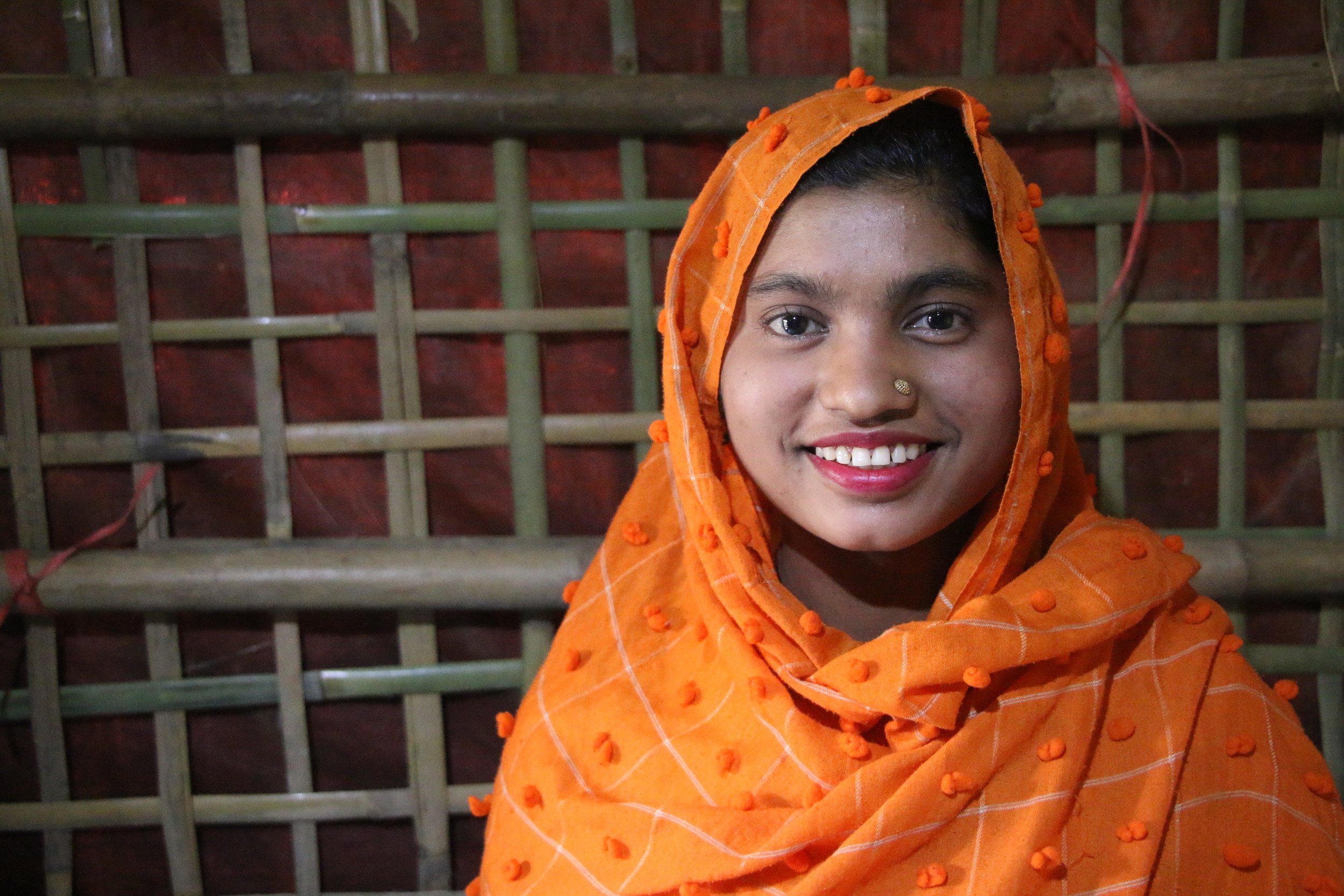Transforming a new bride’s future with hearing aids
Above: Azida, a Rohingya refugee who lives with hearing loss. Photo: Md. Qazi Shamim Hasan/World Vision Bangladesh
In 2020, Azida woke up one morning and could no longer hear anything in her left ear.
Azida had fled to Bangladesh in 2017 with her parents at the age of 13 to escape ethnic violence in her native Myanmar. Her family sought refuge in a Rohingya camp in Cox's Bazar.
At first, Azida wasn’t too alarmed about her sudden hearing loss, thinking there would be a fix.
"One day after waking up in the morning, I felt that I cannot hear properly, and experienced a ringing sound in my left ear. I thought it will be cured," she said.
Above: Azida’s hearing aid has improved her quality of life. Photo: Md. Qazi Shamim Hasan/World Vision Bangladesh
But the problem persisted. Azida’s father took her to the camp health centre, but none of the treatments led to an improvement. Her hearing loss was deteriorating further, and now both ears were affected.
"People spoke to me in a higher volume because of my hearing loss, and my neighbours mocked me about it. Their behaviour hurt me. I cried at night and prayed to God to cure me," Azida said.
Azida was living with her parents and four sisters in a crowded three metre square shelter, dependent on humanitarian aid for their survival.
When Aziza was 17, her father found a single man who lived in a different camp, and married his daughter to him, concealing her hearing loss.
"On the first day of our marriage, my husband became aware of my hearing loss issue. On the third day, he announced that he would grant me a divorce, and my in-laws supported his decision,” Azida remembers.
“I became completely dumb; the whole world was empty to me."
A Rohingya community volunteer heard about Azida’s predicament and informed Debashis Das, disability inclusion coordinator for World Vision on the Australian Humanitarian Partnership (AHP) response.
Above: Azida with her in-laws. She lives with her husband and in-laws in a shelter in a Rohingya camp in Cox’s Bazar, Bangladesh. Photo: Md. Qazi Shamim Hasan/World Vision Bangladesh
One of the priority areas of the AHP response is disability inclusion. World Vision works with technical partners such as the Centre for Disability in Development (CDD) to support people with disabilities in camps and host communities, including organising access to assistive devices.
Debashis and his team visited Azida’s marital home and talked with her husband and in-laws about the options.
"We told them, it may be possible to recover her hearing loss with a hearing device. Azida's husband was convinced and said to us, I will accept Azida if her hearing loss recovers," Debashis said.
Azida’s husband said he wanted to see improvement in six months, and Debashis and his team took on the challenge. With CDD’s support, Azida was able to see a doctor for a diagnosis and recommendation on a suitable hearing device for her left ear.
When Azida received her hearing aid, she could not hold back her tears as she had the device fitted.
Azida still becomes emotional when she remembers the day.
"It was the happiest day in my life. On that day, when I heard clearly, I could not hold my crying and was unable to describe my feelings,” she said.
World Vision staff regularly follow up and check in with Azida, and she is now leading a happy married life.
Azida was one of 248 people with disabilities who were provided with assistive devices by World Vision through the AHP response. The devices help to improve quality of life and ensure meaningful participation and inclusion in the community for people with disabilities.




